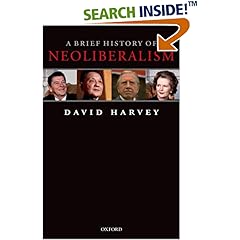Well, actually, they do. Of course, sometimes the horses hurt us too. For example, a group of striking hotel workers in
Houston were trampled by horses. I would like to blame this action on the horses. Unfortunately, the horses were guided by a less logical animal: humans of the law-enforcement kind.

This is nothing new, of course. [update] What is more, as I just read over at mydd.com, it turns out that bail has been set at nearly 900,000 dollars [update #2: reduced to 1000 dollars each] for each of the persons arrested in the protest. That seems a little excessive, but, then again, going against the economic system has always been considered more criminal than personal violence. Here's the
press release:
HOUSTON, Nov. 17 /PRNewswire/ -- In an unprecedented transparent attempt to severely limit the right to peaceful protest and freedom of speech of low-wage Houston janitors and their supporters, a Harris County District Attorney has set an extraordinarily high bond of $888,888 cash for each of the 44 peaceful protestors arrested last night. Houston janitors and their supporters, many of them janitors from other cities, were participating in an act of non-violent civil disobedience, protesting in the intersection of Travis at Capitol when they were arrested in downtown Houston Thursday night. They were challenging Houston's real estate industry to settle the janitors' strike and agree on a contract that provides the 5,300 janitors in Houston with higher wages and affordable health insurance.The combined $39.1 million bond for the workers and their supporters is far and above the normal amount of bail set for people accused of even violent crimes in Harris County. While each of the non-violent protestors is being held on $888,888 bail ...
* For a woman charged with beating her granddaughter to death with a
sledgehammer, bail was set at $100,000;
* For a woman accused of disconnecting her quadriplegic mother's breathing
machine, bail was set at $30,000;
* For a man charged with murder for stabbing another man to death in a bar
brawl, bail was set at $30,000;
* For janitors and protesters charged with Class B misdemeanors for past"
non-violent protests, standard bail has been set at $500 each.
More than 5,300 Houston janitors are paid $20 a day with no health insurance, among the lowest wages and benefits of any workers in America.
Interesting, no? Revealing, no? Surprising--no. Repression of this sort often takes the form of "justice" reasonably meted out by reasonable judges (as long as you consider "reasonable" to be defined by the upper classes and the legal system they created). [end update]
I can't help but draw a parallel to
Greg Grandin's book, an excerpt of which is in Counterpunch:
But before the crisis of 1982, there were the golden years between 1978 and 1981. Just as the international left flocked to Chile during the Allende period, under Pinochet the country became a mecca for the free-market right. Economists, political scientists, and journalists came to witness the "miracle" first hand, holding up Chile as a model to be implemented throughout the world. Representatives from European and American banks poured into Santiago, paying tribute to Pinochet by restoring credit that was denied the heretic Allende. The World Bank and the Inter-American Development Bank extolled Chile as a paragon of responsibility, advancing it 46 loans between 1976 and 1986 for over $3.1 billion.
In addition to money men, right-wing activists traveled to Chile in a show of solidarity with the Pinochet regime. Publisher of the National Review William Rusher, along with other cadres who eventually coalesced around Reagan's 1976 and 1980 bids for the Republican nomination, organized the American-Chilean Council, a solidarity committee to counter critical press coverage in the US of Pinochet. "I was unable to find a single opponent of the regime in Chile," Rusher wrote after a 1978 pilgrimage, "who believes the Chilean government engages" in torture. As to the "interim human discomfort" caused by radical free-market policies, Rusher believed that "a certain amount of deprivation today, in the interest of a far healthier society tomorrow, is neither unendurable nor necessarily reprehensible."
Friedrich von Hayek, the Austrian émigré and University of Chicago professor whose 1944 Road to Serfdom dared to suggest that state planning would produce not "freedom and prosperity" but "bondage and misery," visited Pinochet's Chile a number of times. He was so impressed that he held a meeting of his famed Société Mont Pélérin there. He even recommended Chile to Thatcher as a model to complete her free-market revolution. The Prime Minister, at the nadir of Chile's 1982 financial collapse, agreed that Chile represented a "remarkable success" but believed that Britain's "democratic institutions and the need for a high degree of consent" make "some of the measures" taken by Pinochet "quite unacceptable."
Like Friedman, Hayek glimpsed in Pinochet the avatar of true freedom, who would rule as a dictator only for a "transitional period," only as long as needed to reverse decades of state regulation. "My personal preference," he told a Chilean interviewer, "leans toward a liberal dictatorship rather than toward a democratic government devoid of liberalism." In a letter to the London Times he defended the junta, reporting that he had "not been able to find a single person even in much maligned Chile who did not agree that personal freedom was much greater under Pinochet than it had been under Allende." Of course, the thousands executed and tens of thousands tortured by Pinochet's regime weren't talking.
Hayek's University of Chicago colleague Milton Friedman got the grief, but it was Hayek who served as the true inspiration for Chile's capitalist crusaders. It was Hayek who depicted Allende's regime as a way station between Chile's postwar welfare state and a hypothetical totalitarian future. Accordingly, the Junta justified its terror as needed not only to prevent Chile from turning into a Stalinist gulag but to sweep away fifty years of tariffs, subsidies, capital controls, labor legislation, and social welfare provisions -- a "half century of errors," according to finance minister Sergio De Castro, that was leading Chile down its own road to serfdom.
"To us, it was a revolution," said government economist Miguel Kast, an Opus Dei member and follower of both Hayek and American Enterprise Institute theologian Michael Novak. The Chicago economists had set out to affect, radically and immediately, a "foundational" conversion of Chilean society, to obliterate its "pseudo-democracy" (prior to 1973, Chile enjoyed one of the most durable constitutional democracies in the Americas).
Where Friedman made allusions to the superiority of economic freedom over political freedom in his defense of Pinochet, the Chicago group institutionalized such a hierarchy in a 1980 constitution named after Hayek's 1960 treatise The Constitution of Liberty. The new charter enshrined economic liberty and political authoritarianism as complementary qualities. They justified the need of a strong executive such as Pinochet not only to bring about a profound transformation of society but to maintain it until there was a "change in Chilean mentality." Chileans had long been "educated in weakness," said the president of the Central Bank, and a strong hand was needed in order to "educate them in strength." The market itself would provide tutoring: When asked about the social consequences of the high bankruptcy rate that resulted from the shock therapy, Admiral José Toribio Merino replied that "such is the jungle of . . . economic life. A jungle of savage beasts, where he who can kill the one next to him, kills him. That is reality."
But before such a savage nirvana of pure competition and risk could be attained, a dictatorship was needed to force Chileans to accept the values of consumerism, individualism, and passive rather than participatory democracy. "Democracy is not an end in itself," said Pinochet in a 1979 speech written by two of Friedman's disciples, but a conduit to a truly "free society" that protected absolute economic freedom. Friedman hedged on the relationship between capitalism and dictatorship, but his former students were consistent: "A person's actual freedom," said Finance Minister de Castro, "can only be ensured through an authoritarian regime that exercises power by implementing equal rules for everyone." "Public opinion," he admitted, "was very much against [us], so we needed a strong personality to maintain the policy."
Jeane Kirkpatrick was among those who traveled to Chile to pay respect to the pioneer, lauding Pinochet for his economic initiatives. "The Chilean economy is a great success," the ambassador said, "everyone knows it, or they should know it." She was dispatched by Reagan shortly after his 1981 inauguration to "normalize completely [Washington's] relations with Chile in order to work together in a pleasant way," including the removal of economic and arms sanctions and the revocation of Carter's "discriminatory" human rights policy. Such pleasantries, though, didn't include meeting with the relatives of the disappeared, commenting on the recent deportation of leading opposition figures, or holding Pinochet responsible for the 1976 car bomb execution of Orlando Letelier, Allende's ambassador to the US, in Washington's Dupont Circle -- all issues Kirkpatrick insisted would be resolved with "quiet diplomacy."
Setting aside the struggles surrounding religion, race, and sexuality that give American politics its unique edge, it was in Chile where the New Right first executed its agenda of defining democracy in terms of economic freedom and restoring the power of the executive branch. Under Pinochet's firm hand, the country, according to prominent Chicago graduate Cristián Larroulet, became a "pioneer in the world trend toward forms of government based on a free social order." Its privatized pension system, for example, is today held up as a model for the transformation of Social Security, with Bush having received advice from Chilean economist José Piñera, also a Chicago student, on how to do so in 1997. Pinochet "felt he was making history," said Piñera, "he wanted to be ahead of both Reagan and Thatcher."
Friedman too saw himself in the vanguard. "In every generation," he is quoted in his flattering New York Times obituary, which spares just a sentence on his role in Chile, "there's got to be somebody who goes the whole way, and that's why I believe as I do."
And trailblazer both men were, harbinger of a brave and merciless new world. But if Pinochet's revolution was to spread throughout Latin America and elsewhere, it first had to take hold in the United States. And even as the dictator was "torturing people so prices could be free," as Uruguayan writer Eduardo Galeano once mordantly observed, the insurgency that would come to unite behind Ronald Reagan was gathering steam.
Today, Pinochet is under house arrest for his brand of "shock therapy," and Friedman is dead. But the world they helped usher in survives, in increasingly grotesque form. What was considered extreme in Chile in 1975 has now become the norm in the US today: a society where the market defines the totality of human fulfillment, and a government that tortures in the name of freedom.
That's a rather long excerpt, but you see what I mean. Somewhere in our psyche, "freedom" has been tweaked into coercion. "Pure competition," the ideal preached from on high by von Hayek, by Friedman, has become that article of faith which only faith--in direct contradiction to the weight of evidence--can sustain. And, as usual, the faithful are willing to resort to violence and repression to spread their gospel and defeat the infidels.
The repercussions of the "free" market place on the masses have left the masses to their own devices, which is to say it has left them to become subjects of a state in which they have little or no voice, either politically or philosophically. This is reflected in von Hayeks comments on Chilean dictatorship and mass murder:
"My personal preference," he told a Chilean interviewer, "leans toward a liberal dictatorship rather than toward a democratic government devoid of liberalism."
So, while academics can find within such economic thinkers food for discussion of a liberating, egalitarian sort, when theory meets practice--and this is what is most important--these supposed "philospher kings" reveal their true colors.
So, in Houston as elsewhere, democracy remains dead. Friedman and von Hayek live on, however, riding the horses of "freedom."**
**Yes, I was going to put "apocalypse" here, but it was too obvious. Moreover, there are too many who actually think this. I'm sick of magical thinking and delusion.









